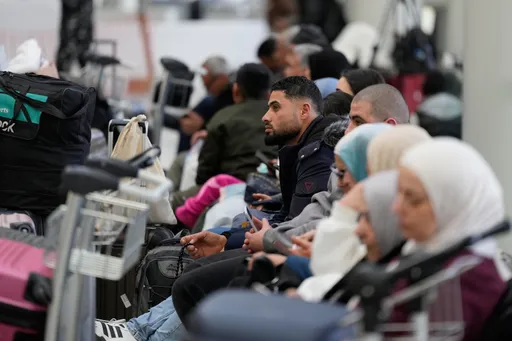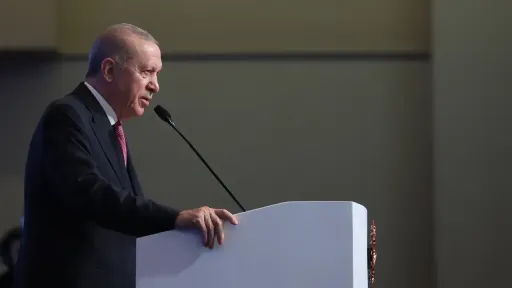By Firmain Eric Mbadinga
September 13, 1958, remains one of the darkest days in the chequered history of Cameroon and the rest of post-colonial Africa.
They say time heals all wounds, but the passage of 66 years has done little to bring closure to a country whose collective soul was crushed that day by the French army.
That momentous tragedy was the assassination of Ruben Um Nyobè, the then 45-year-old secretary general of the Union des Populations du Cameroun (UPC).
Nyobè had been hiding in a forest near his native village of Song Mpeck in central Cameroon when he fell to a hail of bullets for having called for the departure of the French colonialists to make Cameroon an independent Central African nation.
In a reprehensible act meant to make an example of such defiance, Um Nyobè's executioners dragged his lifeless, brutally mutilated body through the mud to the nearby village of Liyong.
Um Nyobè's legacy was buried with him in an unmarked grave for decades.
It wasn't until 1991, 33 years after his death, that a law was passed allowing his name and his struggle for an independent Cameroon to be remembered and commemorated.
This republic of almost 29 million people, more than half of whom weren't even born then, has since been striving to ensure that the values Um Nyobè defended with his life live on.
Sacrifice and struggle
Jean Baptiste Ketchateng, a Cameroonian journalist, reflects on Um Nyobè's legacy as a paradox of pain in his quest for reunification, independence, and social equity.
"He and his compatriots of the time shared a universalist and fraternal vision. They gave their all for the country, the liberation of colonised Africans, and humankind in general. In return, they got banishment, violence, and death," he tells TRT Afrika.
Um Nyobè may not have reaped the fruits of his investment in building a just, free, and fraternal nation, but his selfless struggle did create a strong undercurrent of nationalism from the 1950s until 1971, not just in Cameroon but across Africa.
Cameroonian historian and teacher-researcher Achille Mbembe believes that the fight for the emancipation and sovereignty of African peoples, as represented by Um Nyobè, is still relevant.
"We have not yet begun to explore his legacy in real terms. I am sure that the time will come. We will then realise the richness of it – his theory of struggle, his almost ascetic militancy, his concept of moral independence, his way of linking thought and life, and of going out to meet the world," explains Mbembe.
Early life and activism
Um Nyobè's character as a committed, pacifist activist was forged in southern Cameroon, a region that was a German colony from 1884 to 1916 before falling into French hands until 1960.
Questions of identity, justice, and social issues were close to this visionary's heart.
After completing his studies, Um Nyobè joined the colonial civil service, where he gained first-hand experience of the injustices faced by his compatriots.
Ketchateng notes that Nyobè's early experiences, such as serving as a court clerk, exposed him to the difficulties faced by victims of colonialism and reinforced his legal knowledge.
"He headed the country's first trade union, formed just after the Second World War. He represented Kamerun (the erstwhile name of present-day Cameroon under German occupation) at the founding congress of the Rassemblement Démocratique Africain (an independence movement that Houphouet-Boigny and Co later hijacked for the benefit of France)," recounts Ketchateng.
Um Nyobè also became involved in movements aimed at improving the lot of his compatriots, including the Jeunesse Camerounaise Française, where he campaigned against the possibility of renewing German rule over Kamerun.
In 1947, he and his fellow activist-revolutionaries created the country's first political party, the Rassemblement Camerounais, which the French colonial administration quickly dissolved.
Undeterred, they founded the UPC a year later, working to awaken the masses against colonialism. The party extended its activities to the British-ruled north.
In July 1955, the French and British colonial powers banned the movement.
The last mile
Retreating to the Nyong-et-Kéllé department with some of his supporters, Um Nyobè eventually set up the Kamerun National Liberation Army (ALNK), which started an armed struggle.
Their growing influence prompted the French military to intensify its hunt for independence fighters.
Since the adoption of Law No. 91/022 of December 16, 1991, which lifted the "damnatio memoriae" on Um Nyobè – the Latin phrase that translates to "condemnation of memory" – Cameroon has seen initiatives to make him an emblematic figure in its history.
"The overwhelming majority of our Cameroonian and African compatriots do not know who Um Nyobè really is. His martyrdom is exploited by forgers in the service of neocolonial power to the point of making him say the opposite of what he fought for," Ketchateng tells TRT Afrika.
Mbembe, whose published works highlight the Cameroonian resistance to colonisation, is among those to have removed many of the misconceptions about Um Nyobè.
His 1996 book, La naissance du maquis dans le Sud-Cameroun, 1920–1960: histoire des usages de la raison en colonie, is one such tome.
In 2007, a statue was erected in the town of Éséka in central Cameroon to honour his memory.
To date, France has not openly recognised its hand in Um Nyobè's death. Instead, the colonial administration has always held the UPC responsible for the troubles that led to his assassination.























